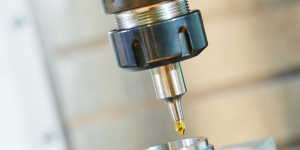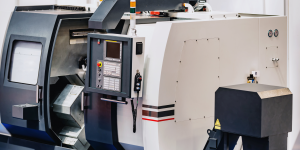Sure, here’s a detailed outline for your blog post: The healthcare industry has come to rely more and more on CNC machining, or computer numerical control machining because of its accuracy, efficiency, and versatility. CNC machining has not only revolutionized the manufacturing of medical devices and prosthetics but also led to innovative surgical tools. In this article, we will shed light on the rationale for CNC machining’s popularity in the healthcare industry and its influence in enhancing patient care and treatment results.
Precision and Accuracy:
The healthcare industry involves precision and accuracy as the fundamental aspects of CNC machining. The capacity of CNC machines to process intricate designs with unprecedented accuracy is a real game changer. This accuracy guarantees medical devices, prosthetics, and surgical tools are made to specifications eliminating the margin of error and hence improving patient safety. In addition, the precision of CNC machining is an important factor in enhancing treatment results since healthcare professionals can trust that components created with this technology will be consistently accurate. The perfect combination of precision and accuracy in CNC machining reveals the crucial part it plays in advancing health technology as well as improving standards for patient care.

Customization and Personalization:
In the healthcare industry, customization and personalization are important aspects of CNC machining since they provide specialized solutions for patients’ individual needs. The precision and adjustability of CNC machines enable the manufacture of implants, surgical instruments as well dental prosthetics that fit perfectly to individual anatomical needs. This level of personalization also improves both patient comfort and function while also contributing to better treatment results. Specificity to patient needs sets CNC machining apart from traditional ones, signaling its importance in dealing with various challenges of healthcare and promoting patient-centered care. In addition, the seamless linking of customization and personalized in CNC machining is a manifestation that it can revolutionize to creation of modern health solutions that are individualistic.
Rapid Prototyping and Production:
The healthcare industry benefits greatly from the quick prototyping and production of CNC machining, which simplifies the process of creating medical devices, prosthetics as well as surgical instruments. The use of CNC machines allows for quick prototyping of complex designs, permitting healthcare professionals to test and improve product iterations effectively. In addition, the quick production features of CNC machining greatly minimize lead time for vital medical equipment that is always necessary in a timely manner to ensure the availability of patient care. The speed of this method in prototyping and production highlights the revolutionary effect CNC machining has had on advancing healthcare technology, improving its delivery to patients.
Material Versatility and Biocompatibility:
With regards to CNC machining for healthcare applications, versatility in the material and biocompatibility are important considerations. CNC machines can work with a variety of materials including metals, plastics, and ceramics; hence medical devices and implants are made according to the specific needs of individual patients. This adaptability guarantees that the materials used are biocompatible with human tissue, reducing the likelihood of allergic reactions and increasing implant survival. In addition, the capacity to use biocompatible materials highlights CNC machining’s contribution to medical innovation since it allows for the manufacture of implants and devices that integrate harmoniously with natural bodily functions. At the crossroads of material flexibility and biocompatibility in CNC machining lies its impact on improving patient outcomes to promote innovation within healthcare technology.

Cost-Effectiveness and Efficiency:
Cost-effectiveness and efficiency are two of the most important characteristics that CNC machining possesses, which makes it an indispensable tool in healthcare. The cost reduction that results from the streamlined production processes and minimal material wastage associated with CNC machining benefits healthcare facilities, as well as patients. Furthermore, the proper functioning of CNC machines enables timely delivery of medical devices, prosthetics, and surgical tools therefore ensuring smooth patient care. Through resource utilization optimization and production timelines improvement, CNC machining shows its ability to provide cost-effective solutions that increase operational efficiency in the healthcare industry leading to improved patient outcomes as well as better healthcare delivery.
Conclusion
CNC machining has revolutionized the way medical devices, implants, and instruments are designed manufactured, and used due to its widespread adoption in healthcare. Through precision, customization, rapid prototyping material versatility, and cost-effectiveness CNC machining is integral in improving patient care; pushing the boundaries of medical technology while driving innovation within health care. With the advancement in technology, the adoption of CNC machining will continue to innovate healthcare, thus providing better outcomes for patients and a higher quality of life.
